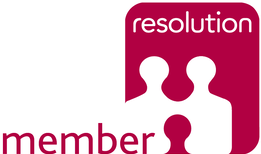After separation, organising child contact for the parent who has left the family home is important for both the child and parents. Parental separation can be upsetting and confusing for children so ensuring that they are still able to have a relationship with each parent will help with processing the separation.
Organising contact can be difficult, especially if the separation has not been amicable. To help, we have compiled some FAQs to give you a better understanding of child contact.
What is contact?
Contact is where a child can see or communicate with their parent who no longer lives in the family home.
What types of contact are there?
There are various types of contact that are available after a separation.
- Indirect Contact – This type of contact is where the child/children don’t see their other parent directly. Instead, contact happens through email, letters, online, telephone calls etc. This type of contact is generally used as a way of introducing a parent who has been absent back into a child’s life.
- Supervised Contact – This is where all visits between the parent and child are supervised by either yourself, a trusted family member or by a third party (such as a social worker). This type of contact is normally used if there are concerns for the child’s safety or the parent has been absent for some time.
- Unsupervised Contact – The most common and the most preferable kind of contact, providing that there are no concerns for the child’s safety. This is where the child will have direct contact with the parent without any supervision.
How long does contact last?
This depends on the type of contact that is in place for the parent and child. With supervised contact, visits generally range for 1-2 hours, sometimes longer. Unsupervised contact can last anything for a couple of hours to weeks at a time.
Where does contact take place?
Contact can be organised in a location where you and your child feel comfortable. The most common places for supervised contact to happen are;
- Your Home
- A Trusted Relatives Home
- Public Place (e.g. café, park, play centre)
- Other Parent’s Home
- Contact Centre
Can contact be changed?
Yes, just because an original contact order has been established doesn’t mean that contact will stay that way permanently. Sometimes a contact order will state that the other parent will receive supervised visits until such time that there are no concerns for the child’s safety, after which unsupervised contact would take place. Unsupervised contact can also be changed to become supervised if there are concerns about the safety of the child/children.
My child’s parent and I don’t agree on contact, what can I do?
If you are having difficulty agreeing on contact for your child you may need to seek help from a mediator. A mediator will try to help resolve any issues or communication problems between both parties in order to establish an arrangement that both parents are happy with.
Mediation didn’t work, what should I do now?
Sometimes mediation isn’t appropriate for everyone. If mediation hasn’t helped resolve any contact issues, you should seek help from a solicitor and family courts.
I don’t want my child’s parent to have any contact, what can I do?
Unless there are any serious safeguarding issues, family courts encourage a child to have a relationship with both parents. If the other parent pursues a contact order through family courts, there is a high chance they will get some form of contact unless there are concerns about the following issues, but even then, contact can still often take place, just often supervised in a safe environment
- Substance Abuse
- Domestic Abuse
- Criminal Behavior
- Safeguarding Issues
What if my child doesn’t want to see their other parent?
A child refusing to see their other parent is a difficult thing to deal with. Sometimes it can be down to them missing you when they are with their other parent. Try to communicate with their other parent and work together to find out why your child feels that way. If there are any safety concerns about why the child does not wish to see their parent, it’s best to contact your solicitor.
My child’s parent is not following the court order, what can I do?
If you have gone through the family court to get a contact order in place, the order is a legally binding document. Both parties must follow what the order specifies, including contact days, pick up/drop off times, etc. Failing to comply with the court order by refusing contact or refusing to drop the child off at the agreed times could be considered contempt of court. The best thing to do is to seek advice from your solicitor.
If you need any help with arranging contact for your child/children, get in touch with Hill and Company Solicitors. Our experienced family law team are available to support you through negotiations or through the court in order to help you get your desired outcome.



